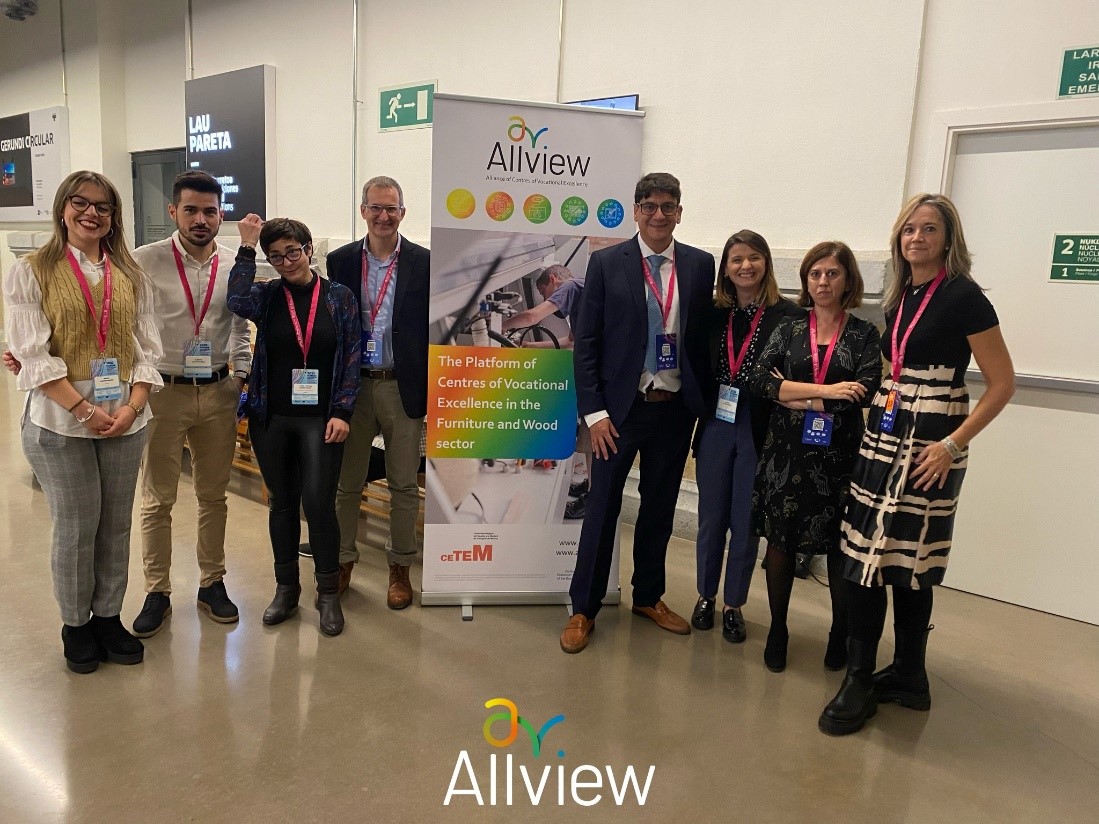The event was jointly organised by the European Commission and the Basque Government, with the support of the European Training Foundation (ETF), the European Centre for the Development of Vocational Training (Cedefop) and the European Commission's Executive Agency for Education and Culture (EACEA), as well as the CoVEs Community of Practice, and Katapult.
Eurada staff attended as member of the ongoing CoVE project “ALLVIEW”, the European Alliance of associations and federations of the woodworking and furniture industries in Europe, VET providers and authorities, sectoral research and innovation centres and other experts.
The event was guided and introduced by high-level political representatives who underlined how necessary is to foster a strong bottom-up approach to vocational excellence involving a wide range of local stakeholders enabling VET institutions to rapidly adapt skills provision to evolving economic and social needs. Soft and not only technical skills.
Indeed, a new vision is combining Industry 4.0-enabled solutions with real-time data transfer, virtual reality and innovative wearable devices to ensure the quality and to improve the flexibility of companies’ production potential. However, whatever innovation is backed by knowledge, culture and vision and puts mankind at the centre of a collaborative, safe and integrated manufacturing and social environment.
European regions are called to contribute to the Industry of the Future approach since it brings benefits to local companies, workers and society. People are the real drivers of industrial transition and other societal development. This vision is well pictured by three of the Commission’s papers: "An economy that works for people", "European Green Deal" and "Europe fit for the digital age". The Commission policy initiatives are encouraged to adopt a human-centric approach to digital technologies including artificial intelligence; education, up-skilling and re-skilling European workers with a particular focus on digital skills. Modern, resource-efficient and sustainable industries are transitioning to circular economy. Globally competitive and world-leading industry are speeding up investment in research and innovation.
But are we, citizens, really engaged and enabled to face the challenge successfully?
Upcoming events
2023 Summer School:
Stay tuned and follow the track of our training initiative on our website.
